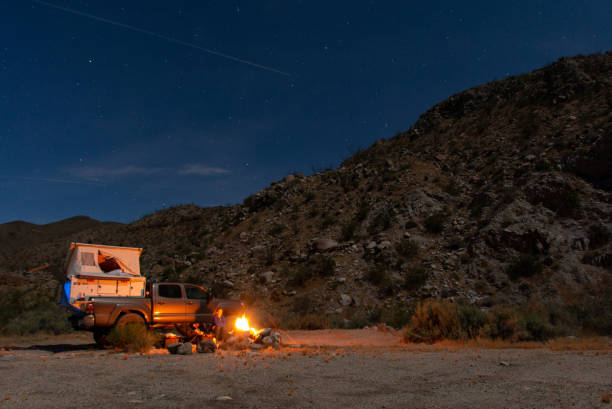In the heart of every adventure seeker lies a yearning for new horizons, uncharted terrain, and the exhilaration of self-discovery. Overlanding, with its promise of boundless exploration, has captured the spirit of countless outdoor enthusiasts. Among the tools and equipment essential to this thrilling pursuit, off-road trailers stand as unsung heroes, silently elevating the entire experience. These versatile companions offer an array of advantages, from expanding cargo space for extended wilderness journeys to providing a comfortable, convenient haven at camp. If you’re considering delving into the world of overlanding, or you’re already a seasoned traveler, our guide to mastering overland adventures with off-road trailers will unveil the secrets to a safer, more enjoyable expedition. So, fasten your seatbelt and embark on a journey into the world of off-road trailer exploration.
As an E3 Member, you get an EXCLUSIVE discount to one of our Overland Trailer
partners that you won’t find anywhere else!
Sign up today and get your discount inside of the member platform!
Mastering Overland Adventures with Off-Road Trailers:
Your Ultimate Guide
For many avid overlanders, the allure of off-road trailers is simply irresistible. These trailers elevate your overland experience by offering numerous advantages, such as:
- Expanding your cargo capacity for longer journeys into the wilderness.
- Enhancing camping comfort and convenience.
- Allowing you to detach your trailer at base camp while exploring lightly loaded.
- Simplifying trip preparations when your trailer is ready to roll at a moment’s notice.
When it comes to vehicle-supported adventures, four main camping setups exist, each with its own unique benefits:
- Camping directly from your vehicle (tent on the vehicle or the ground).
- Utilizing a highly customized standard-size vehicle with a built-in bed.
- Opting for an off-road trailer (featuring a roof-top tent or sleeping inside).
- Choosing a larger RV-type 4WD vehicle.
The advantages of overlanding with an off-road trailer:
- Efficient weight distribution.
- The ability to keep the trailer prepped between trips.
- Allows for daily use of your towing vehicle when not overlanding.
Advantages of an off-road trailer over larger, self-contained RV-type 4WD vehicles
Trailers offer the following benefits:
- Cost-effectiveness.
- Versatility as your daily driver.
- Capability to traverse nearly any trail your towing vehicle can handle.
- Maneuverability on narrow, off-camber, and challenging trails.
Disadvantages of off-road trailers compared to larger, self-contained RV-type 4WD vehicles:
- Reduced security against wildlife and potential intruders.
- Slightly less overall comfort.
- RV-type 4WD vehicles provide superior protection from harsh weather and a more comfortable camping experience.
- Trailer camping in parking lots or along highways can be challenging.
- 4WD RVs offer more convenience when overnighting in urban settings.
Essential Features of a Reliable Off-Road Trailer
- When selecting an off-road trailer, focus on these key features, ensuring it’s tailored for rugged adventures:
- Built specifically for off-road use with appropriate construction, clearance, and tire size matching your towing vehicle.
- Equipped with an articulating hitch providing 360-degree rotation and 3-axis movement.
- Offers utility beyond overlanding, making it versatile for various outdoor activities.
- Includes rear recovery points, ideally with a 2″ receiver on the rear frame or bumper.
Driving with an Off-Road Trailer
Tackling technical trails with an off-road trailer presents its share of challenges, demanding an entirely different set of driving skills. To tow an off-road trailer safely and effectively, you’ll need to develop these skills and practice them on challenging terrain. Some important considerations include:
- Practice essential trailer skills at home, from loading and parking to setting up camp and handling unexpected issues.
- Pay attention to trailer and tow vehicle weight distribution for optimal balance.
- Lower your trailer’s tire pressure for off-road excursions to improve ride quality.
- Adjust your driving technique for challenging terrain, modulating brake and throttle pedals when necessary.
- If your trailer becomes stuck or hi-centered, be prepared to use a Hi-Lift Jack to lift and maneuver it.
- When descending slippery slopes, engage 4WD-low gearing or use hill descent if available, and consider using your trailer’s electric brakes to maintain control.
- For deep gully crossings, exercise caution and be ready to winch your trailer out if necessary.
- Make use of your winch when traversing challenging terrain to maintain driveline integrity.
- Utilize spotters to guide you over obstacles, given the different paths your trailer’s wheels take.
- Equip your trailer with the same size rims and tires as your tow vehicle to minimize the need for extra spares.
- While towing on the highway, adjust your speed due to the added weight of the trailer, and be aware of state requirements for trailer wheel chains.
Whether you’re contemplating the purchase of an off-road trailer or already own one, taking the time to refine your skills ensures a safer, more enjoyable off-road adventure.
As an E3 Offroad & Overland member, you get access to TONS of informative offroad and overland articles and content. Sign Up or Log In today and enjoy all of the tools, resources, product discounts, community and entertainment that E3 Offroad / Overland Association offers.

